100 years of Wembley Stadium: from the ‘White Horse’ to the Lionesses
A look back at the memorable moments from the old and new iconic stadium in London
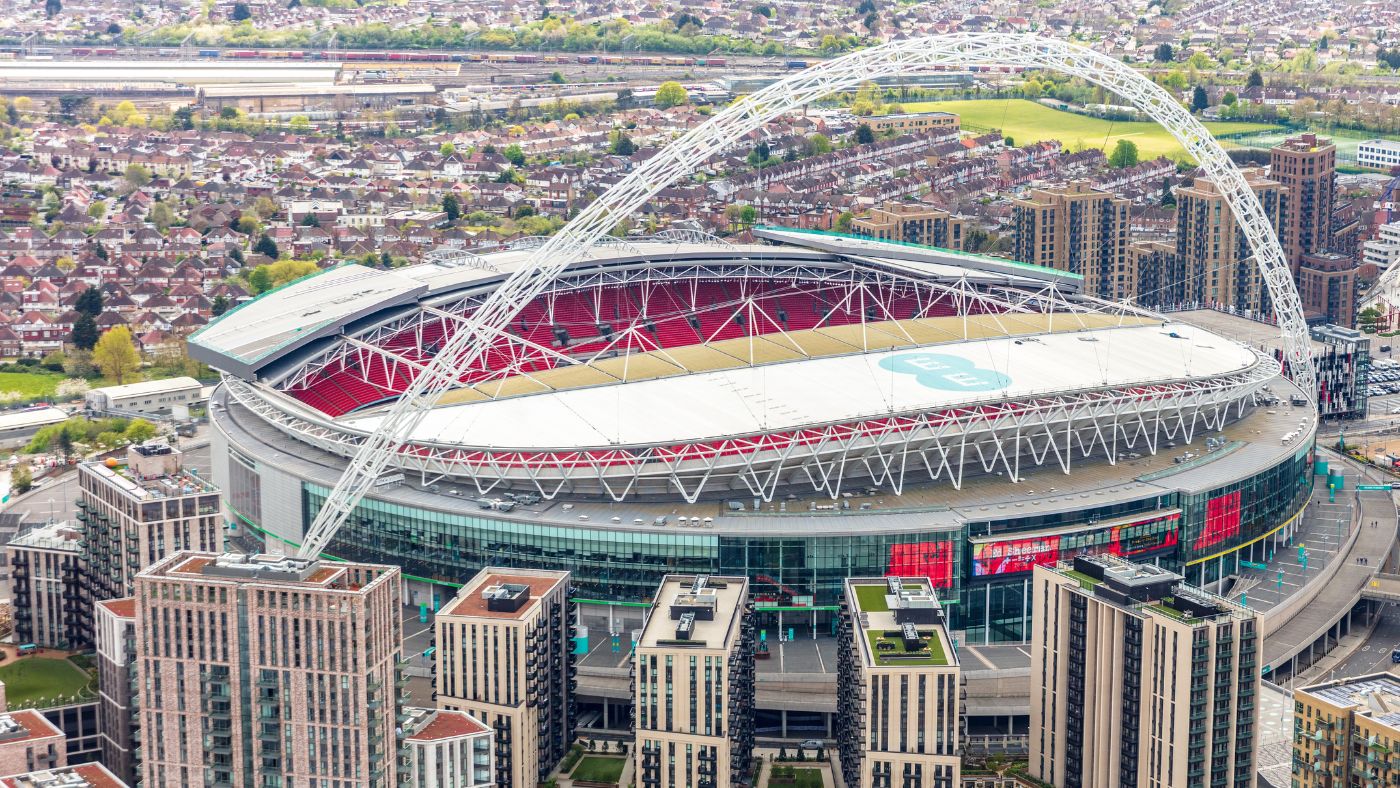
- 1. 1923: the ‘Empire Stadium’ opens
- 2. 1923: ‘White Horse Final’
- 3. 1948: Olympic Games
- 4. 1966: England win the World Cup
- 5. 1968: Manchester United win the European Cup
- 6. 1982: first open-air mass of Pope John Paul II’s visit to Britain
- 7. 1985: Live Aid and Queen’s ‘greatest live gig of all time’
- 8. 1996: Germany win the Euros with a ‘golden goal’
- 9. 2000: farewell to ‘old’ Wembley
- 10. 2007: ‘new’ Wembley opens
- 11. 2022: Lionesses win the Women’s Euros
- 12. Now: the modern-day Wembley
A free daily email with the biggest news stories of the day – and the best features from TheWeek.com
You are now subscribed
Your newsletter sign-up was successful
In its various guises London’s Wembley Stadium has played host to some of the most memorable moments in British football, sport and pop culture. From England’s victorious World Cup win in 1966 to Freddie Mercury and Queen’s stunning set at Live Aid in 1985, the stadium and millions of fans have witnessed events that have gone down in history.
The capital’s “iconic” stadium “is one of the world’s most beloved homes of sports”, said Ellie Stathaki in Wallpaper*. And its 133m-high arch, “dramatically lit at night”, is an “instantly recognisable” London landmark.
This week marks 100 years since the original stadium first opened its doors. Here we look back at the history of Wembley – old and new – and the triumphs and tears along the way.
The Week
Escape your echo chamber. Get the facts behind the news, plus analysis from multiple perspectives.

Sign up for The Week's Free Newsletters
From our morning news briefing to a weekly Good News Newsletter, get the best of The Week delivered directly to your inbox.
From our morning news briefing to a weekly Good News Newsletter, get the best of The Week delivered directly to your inbox.
1. 1923: the ‘Empire Stadium’ opens
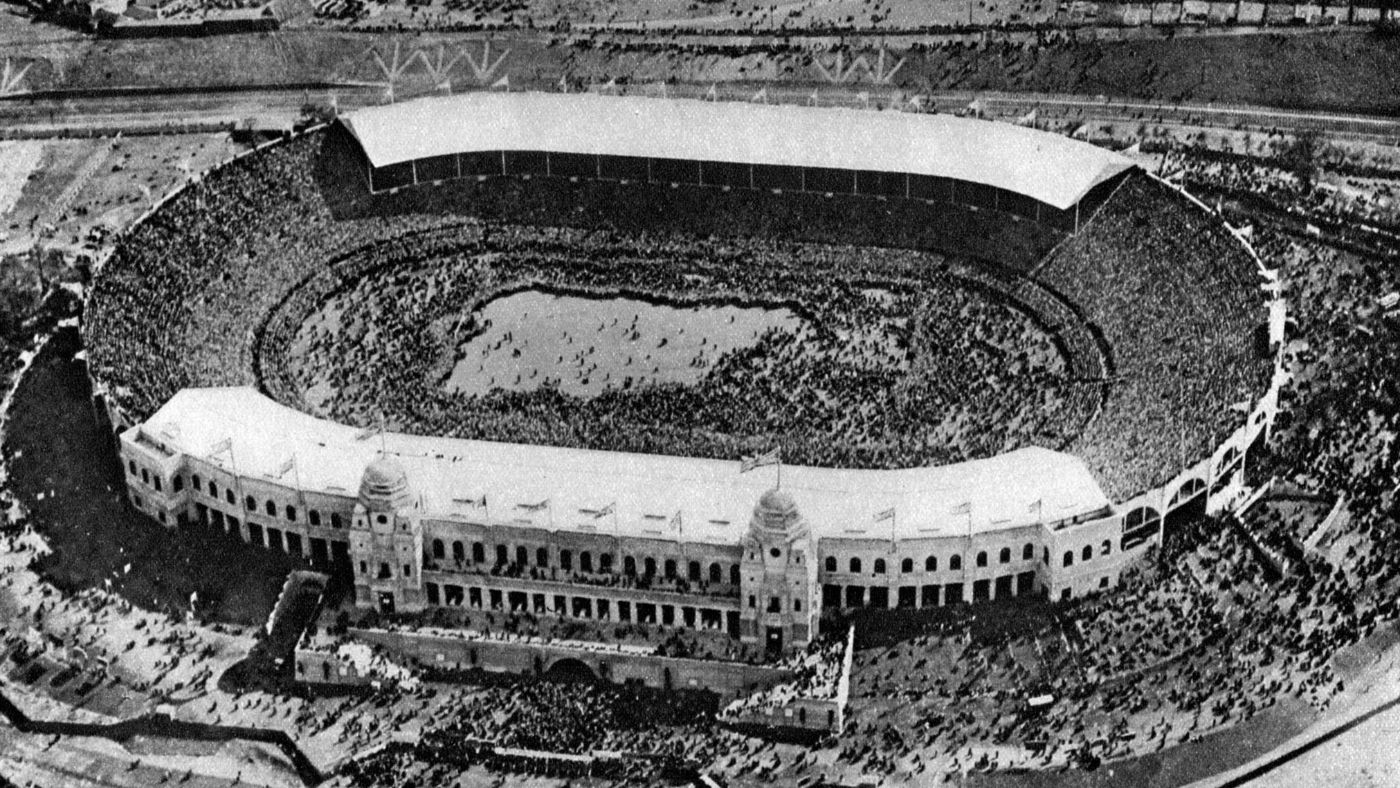
Originally built as the centrepoint of the British Empire Exhibition of 1924-25, the “Empire Stadium”, as it was called, was constructed in 300 days. Built by Sir Robert McAlpine, who founded the famous construction company, it was ready on 23 April 1923. The “old ground cost £750,000”, said Steve Curry in the Daily Mail, and its “Twin Towers” became an “icon across the world”.
2. 1923: ‘White Horse Final’
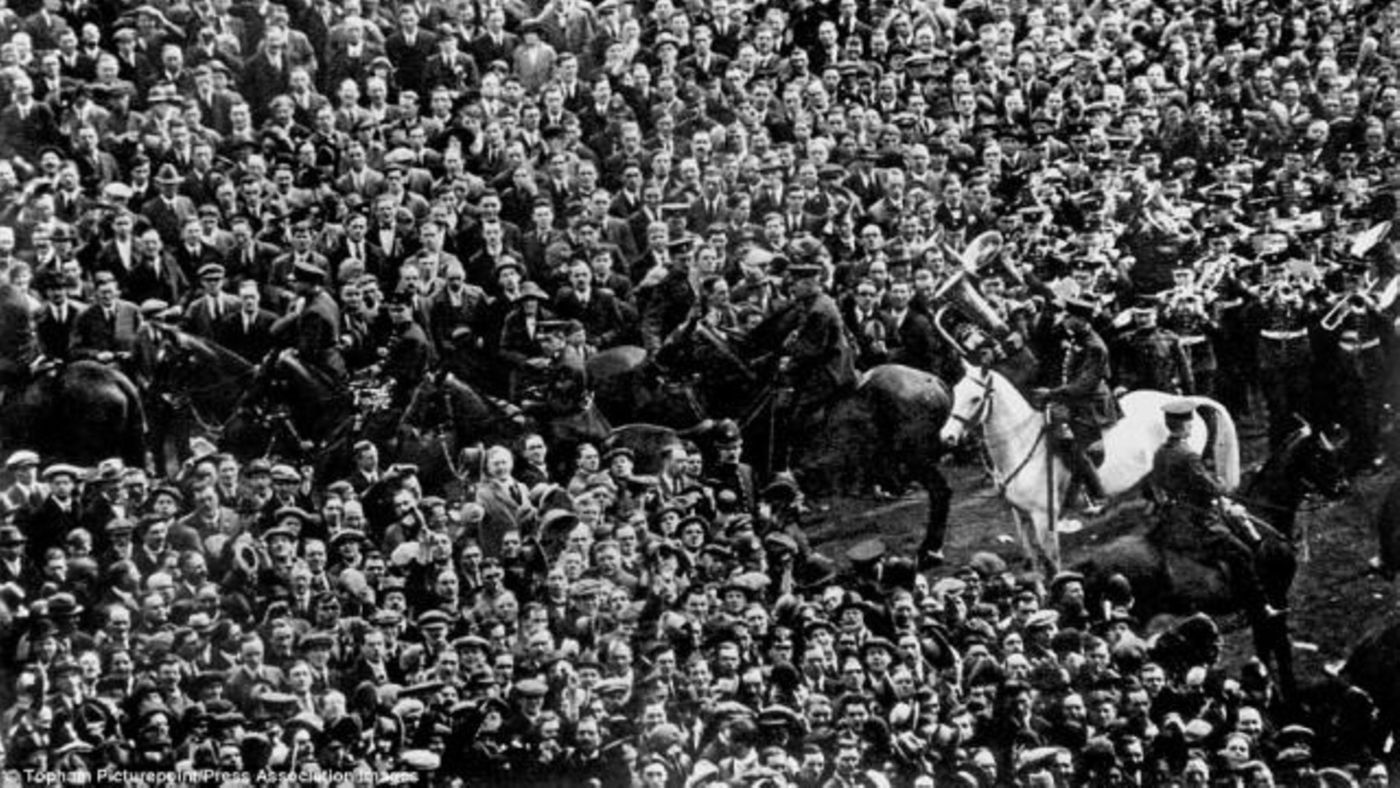
Five days after its opening the stadium hosted its first football match – the 1923 FA Cup final between Bolton Wanderers and West Ham United, which Bolton won 2-0. It was the first ever FA Cup final staged at Wembley, but it “could have been the last”, said Damian Mannion on talkSPORT. A “higher than anticipated” number of fans showed up and there was “huge overcrowding”. Spectators “spilled onto the pitch” and police, “led by George Scorey on Billie, the white horse”, maintained order in the historic game, despite kick-off being delayed by an hour. The match would go on to be remembered as the “White Horse Final”.
3. 1948: Olympic Games
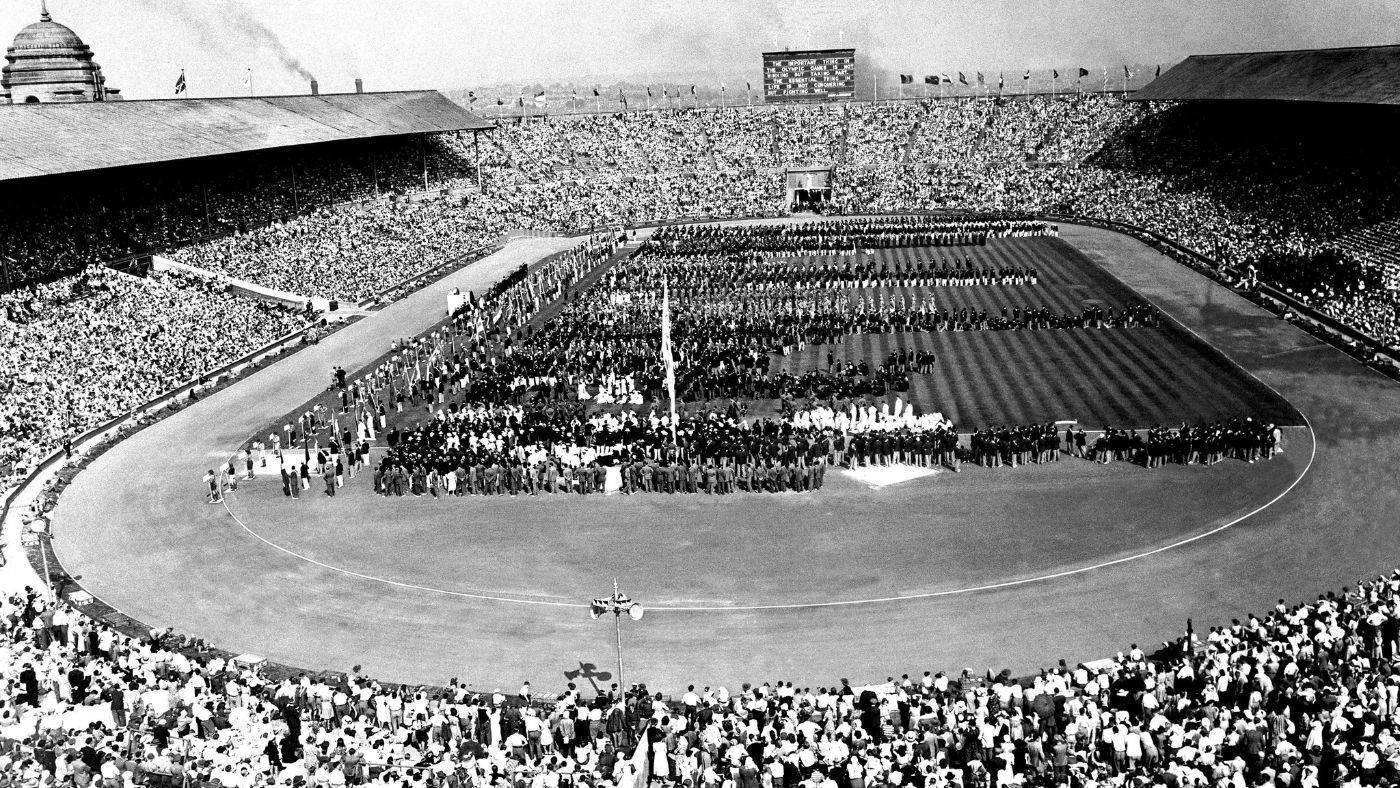
London has held three Olympic Games and in 1948 Wembley was the main setting. With no Games held in 1940 or 1944 due to the Second World War, London was “called upon at short notice to host”, said Olympics.com. Despite “shortages of essential products” due to rationing, the capital city “rose magnificently to the challenge”. Wembley hosted the opening ceremonies, track-and-field competition and other events. A commemorative plaque from the original opening of Olympic Way in 1948 has been restored and unveiled at Wembley Park.
4. 1966: England win the World Cup
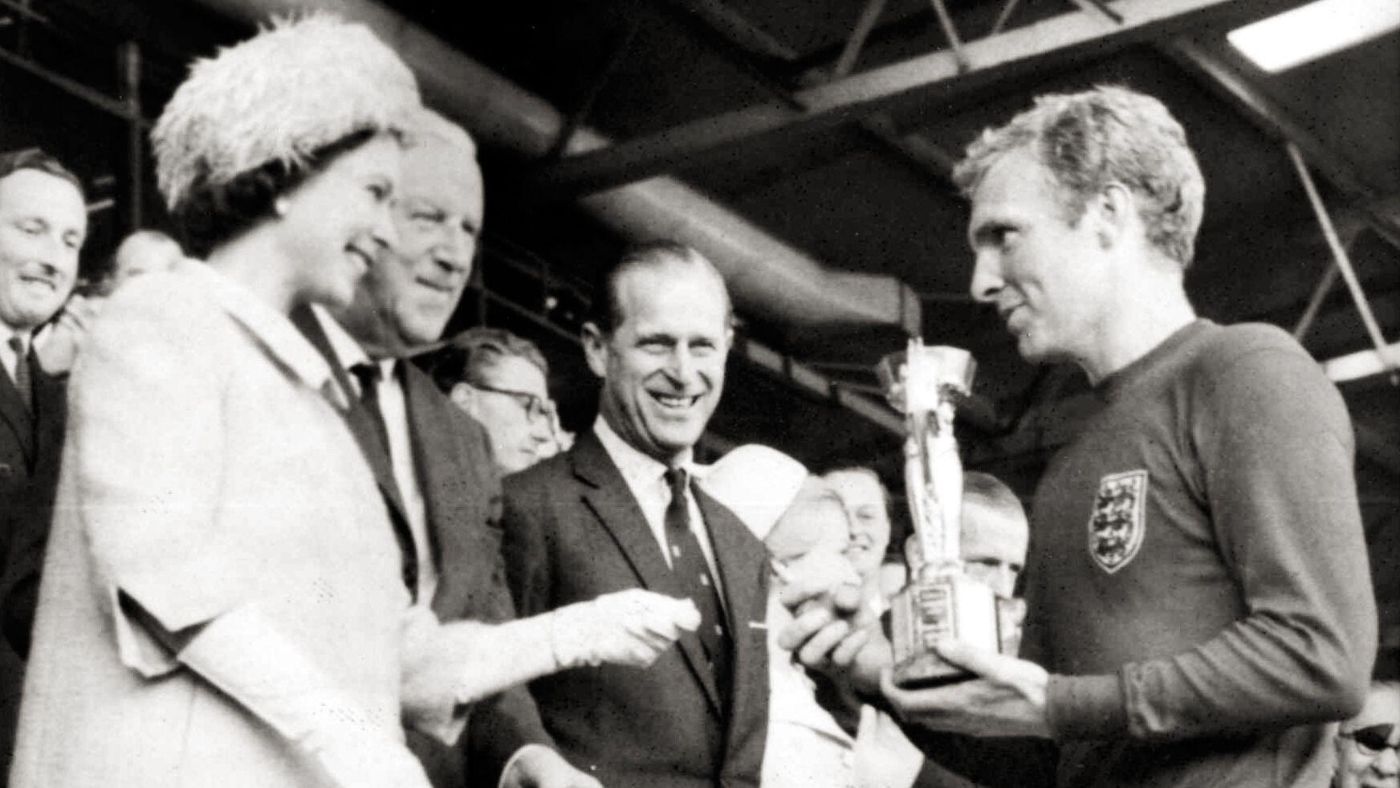
The date 30 July 1966 will go down in history as English football’s finest moment. Managed by Alf Ramsey and captained by Bobby Moore, the host nation won the World Cup with a 4-2 victory over West Germany after extra-time. It was an “eventful final” at Wembley with moments such as Geoff Hurst’s hat-trick and his infamous did-it-cross-the-line “phantom goal”, said Ritabrata Banerjee on Goal.com. Skipper Moore led the England team up the steps at Wembley and received the solid gold Jules Rimet trophy from Queen Elizabeth II.
A free daily email with the biggest news stories of the day – and the best features from TheWeek.com
5. 1968: Manchester United win the European Cup
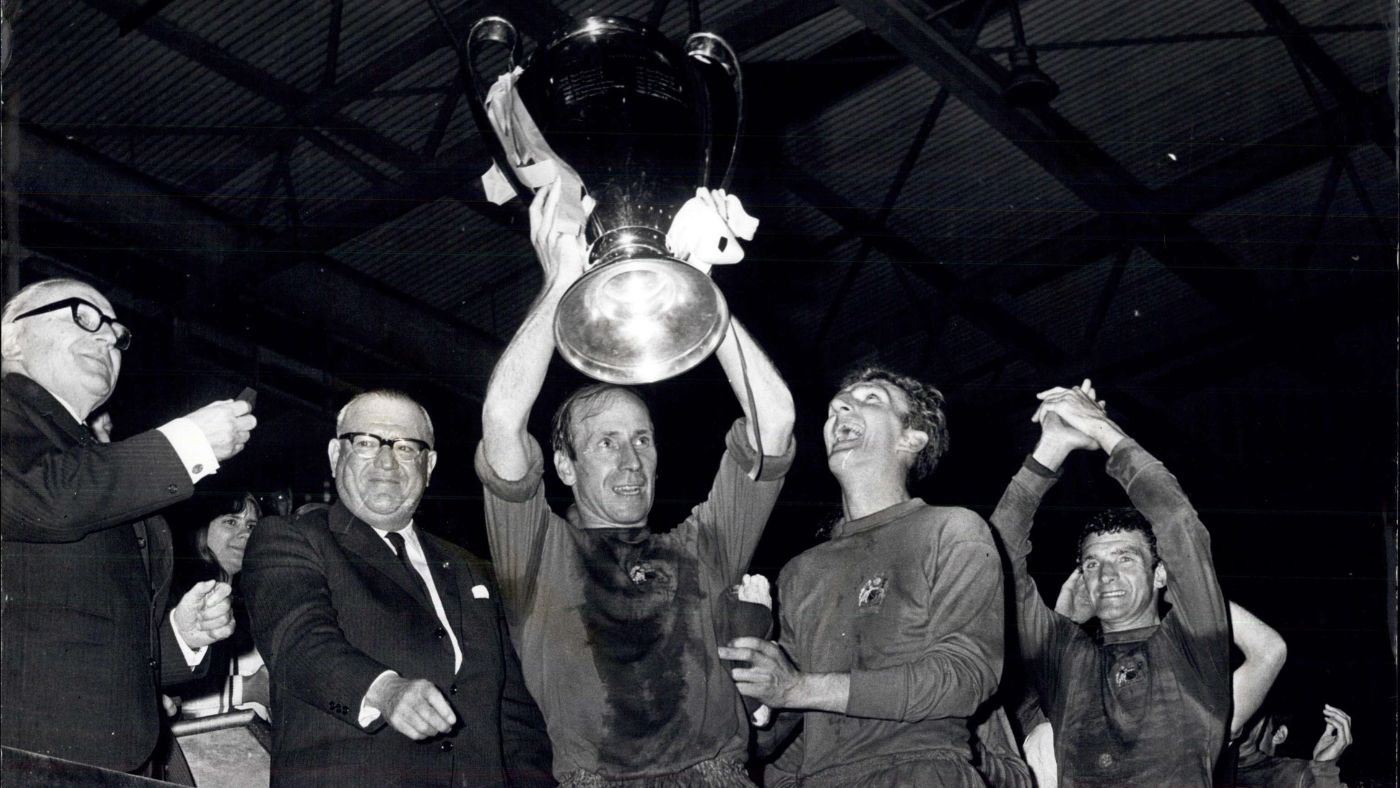
Another major moment in Wembley’s football history came on 29 May 1968 as Manchester United became the first English side to win the European Cup. In the final at Wembley, Matt Busby’s team beat Portuguese champions Benfica 4-1 after extra-time. “It was significant, too,” said Rob Dawson on ESPN, “in that it came just 10 years after the Munich air disaster,” which killed eight United players and seriously injured Busby and captain Bobby Charlton.
6. 1982: first open-air mass of Pope John Paul II’s visit to Britain
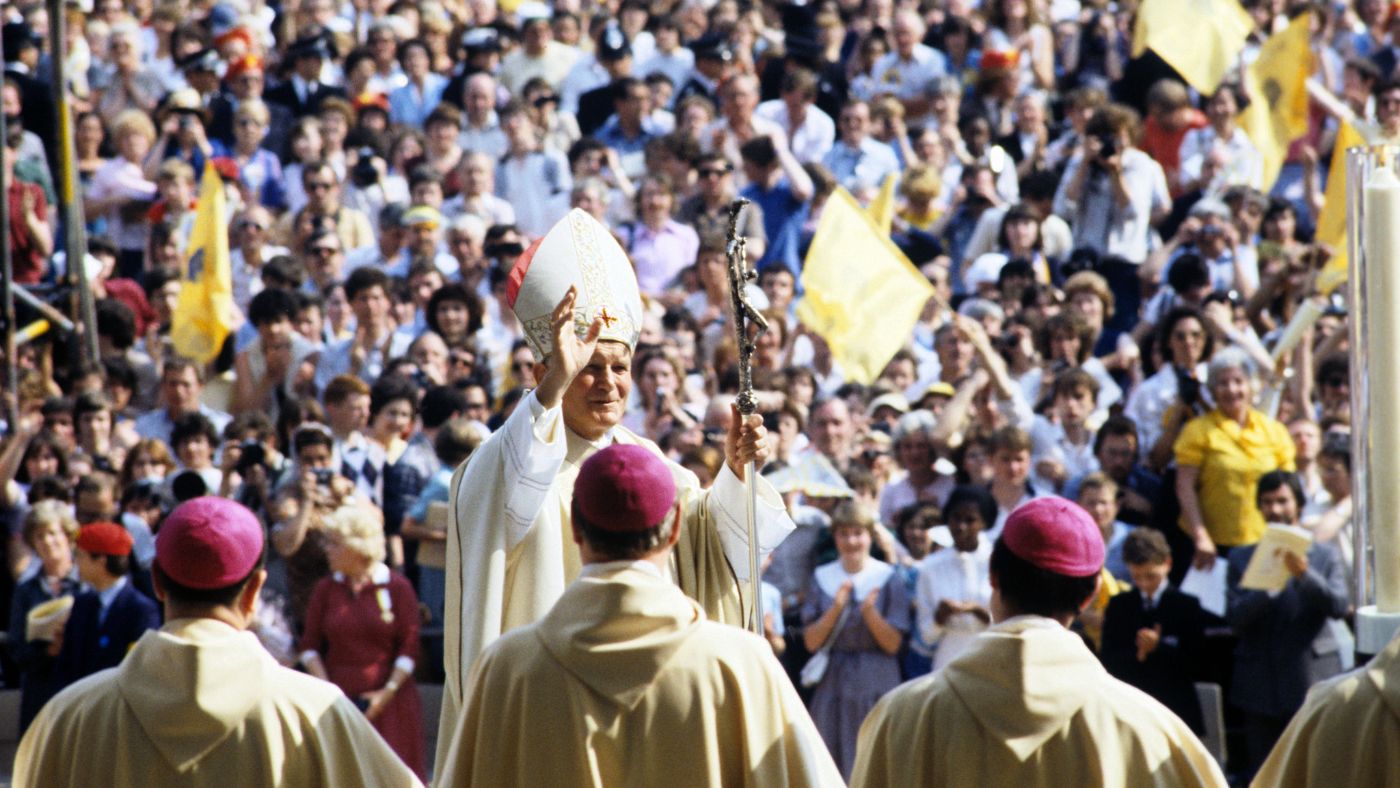
Pope John Paul II travelled to the UK in 1982 for a “six-day tour during which he greeted and blessed thousands of people at 16 different venues”, said The Guardian. On 29 May the Pope held an open-air mass at Wembley with more than 70,000 people in attendance.
7. 1985: Live Aid and Queen’s ‘greatest live gig of all time’
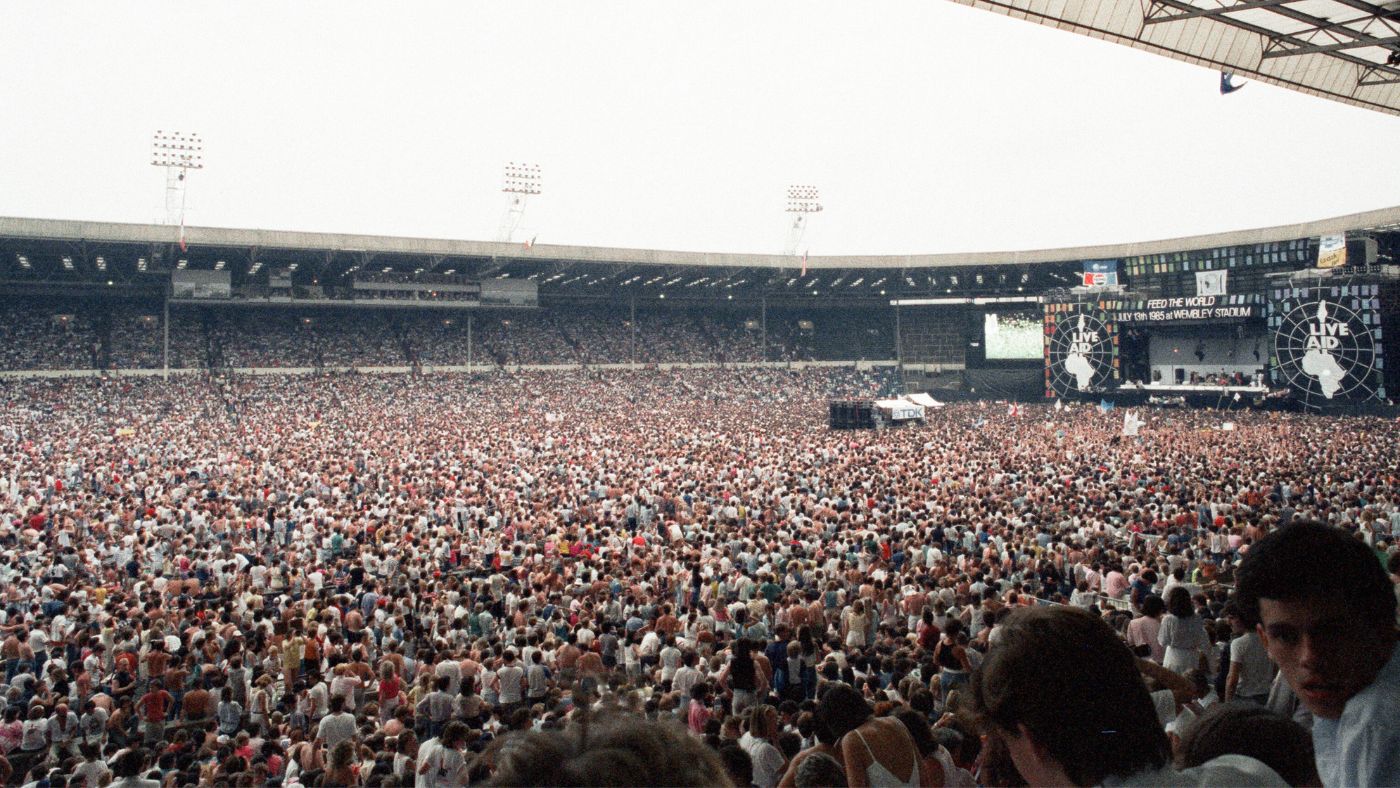
Wembley Stadium has hosted many huge music concerts and entertainment events, but none quite as memorable as Live Aid on Saturday 13 July 1985. Raising millions of pounds for famine relief in Africa, the Wembley concert had a line-up of musical icons including David Bowie, The Who, Elton John and Paul McCartney. But it was Queen, spearheaded by their “electric front man” Freddie Mercury, who stole the show with a “spectacular performance”, said Holly Thomas on CNN. Queen’s set is often lauded as the “greatest live gig of all time”.
8. 1996: Germany win the Euros with a ‘golden goal’
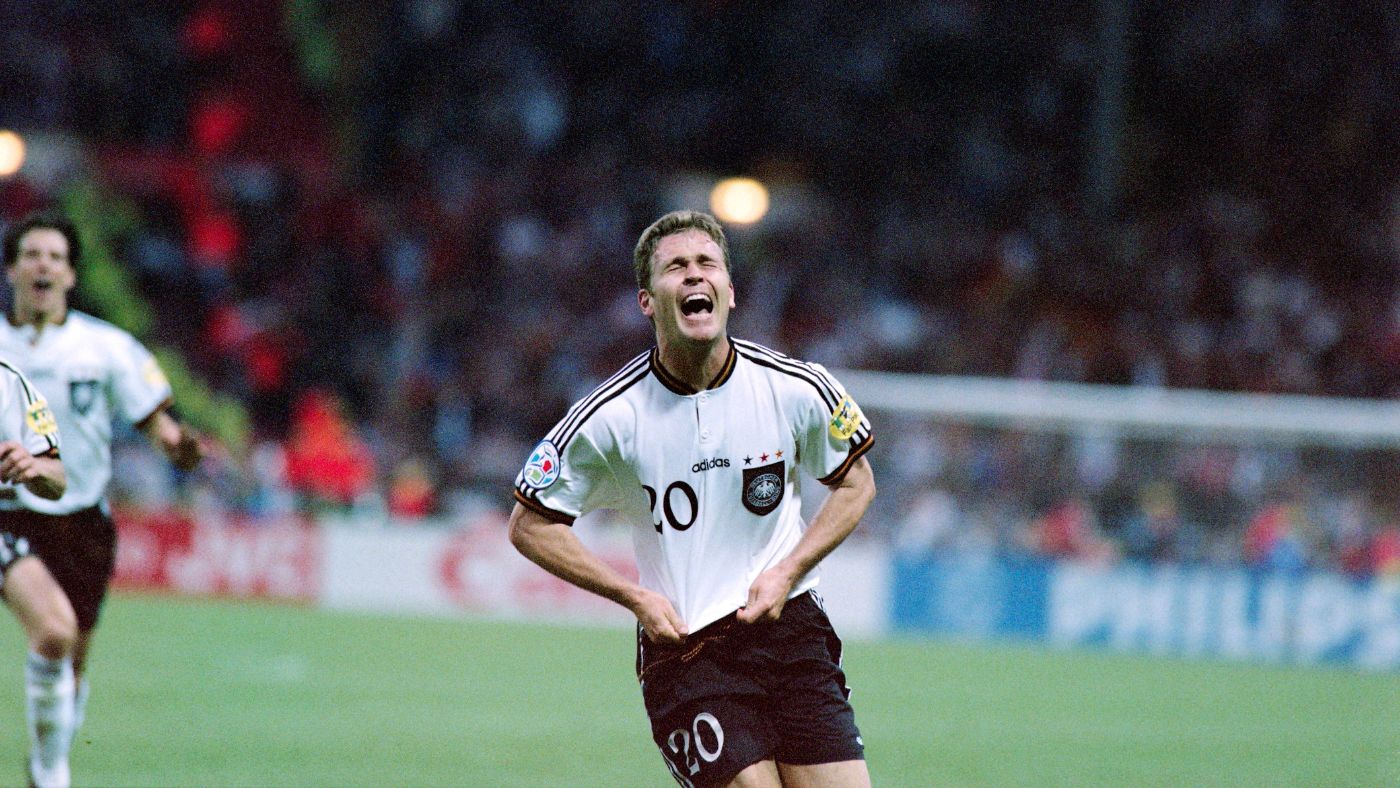
The 1996 Uefa European Championship took place in England with Wembley hosting six matches – including a semi-final and the final. In the last four at Euro 96 Germany broke home hearts by winning on penalties. The Germans went on to lift the trophy, beating the Czech Republic 2-1 in the final thanks to Oliver Bierhoff’s “golden goal” at Wembley. Bierhoff’s 95th-minute winner was the “first golden goal to be scored in a major international football tournament”, said Off The Ball. The golden goal “experiment” was later phased out at major tournaments and is now “part of history”.
9. 2000: farewell to ‘old’ Wembley
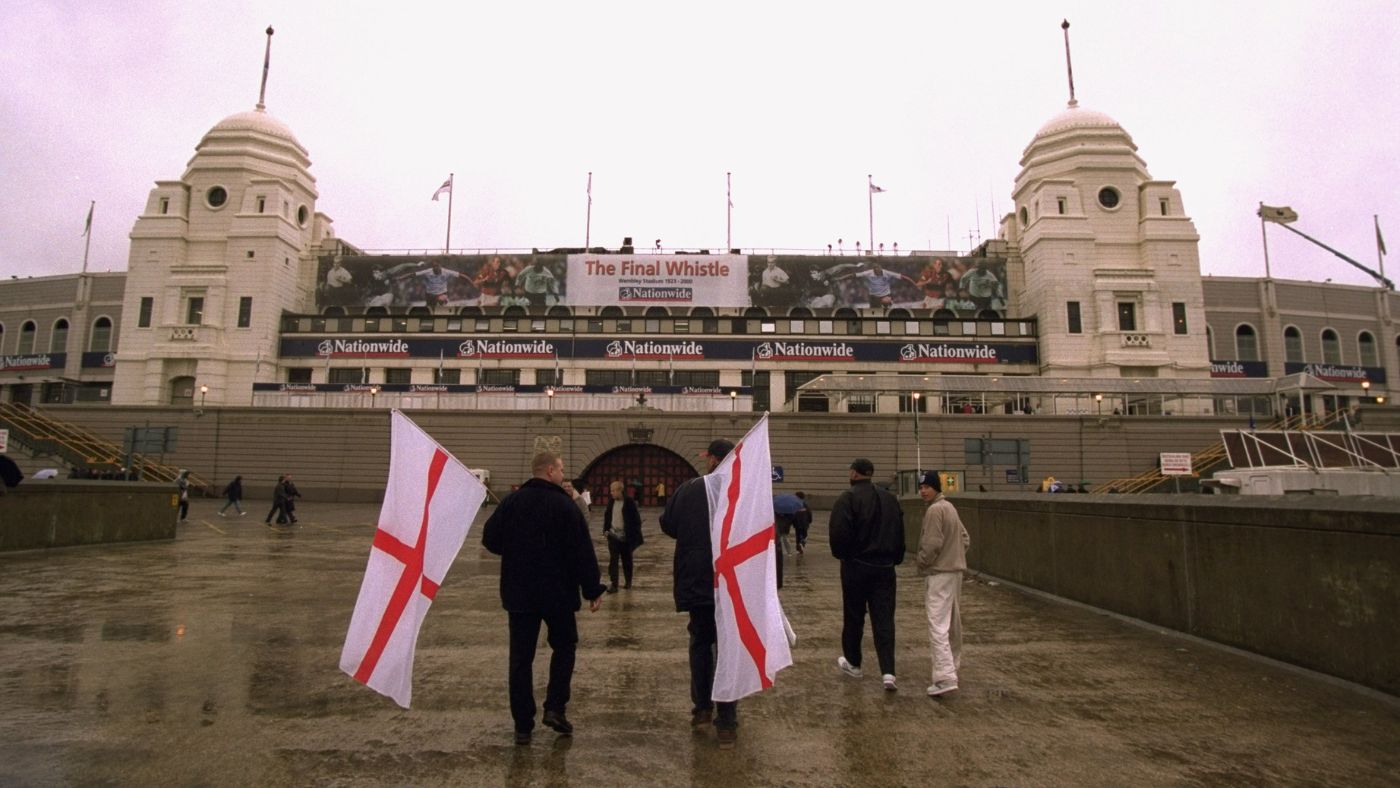
England’s most famous football stadium “had been in need of redevelopment for some time”, said Liam Apicella on SportsMole. So it was decided that the “famous old ground” would be knocked down and reconstructed to “bring it into line with other modern facilities around the world”. A World Cup qualifying game on 7 October 2000 saw England and Germany go head-to-head in what would be the final football match at the old Wembley. Liverpool midfielder Dietmar Hamann scored the only goal as Germany won 1-0.
10. 2007: ‘new’ Wembley opens
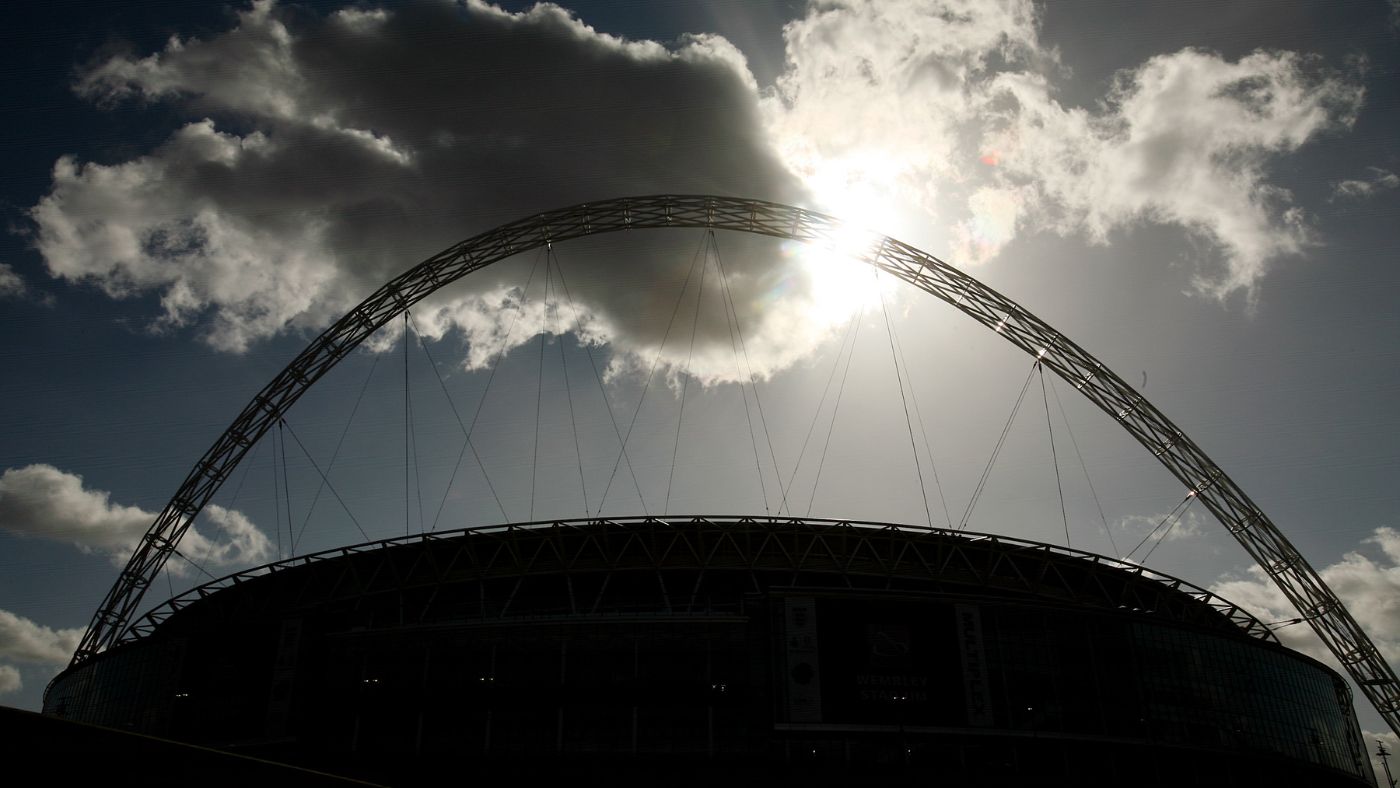
The old stadium was demolished by the FA in 2003 and reopened with a new landmark arch and capacity for 90,000 spectators in March 2007. The new Wembley cost £798m and has since gone on to host “countless events”, said Freddie Keighley in the Mirror, including men’s and women’s European Championship matches, Uefa Champions League finals in 2011 and 2013, London 2012 Olympic football games, NFL matches and major music concerts.
11. 2022: Lionesses win the Women’s Euros
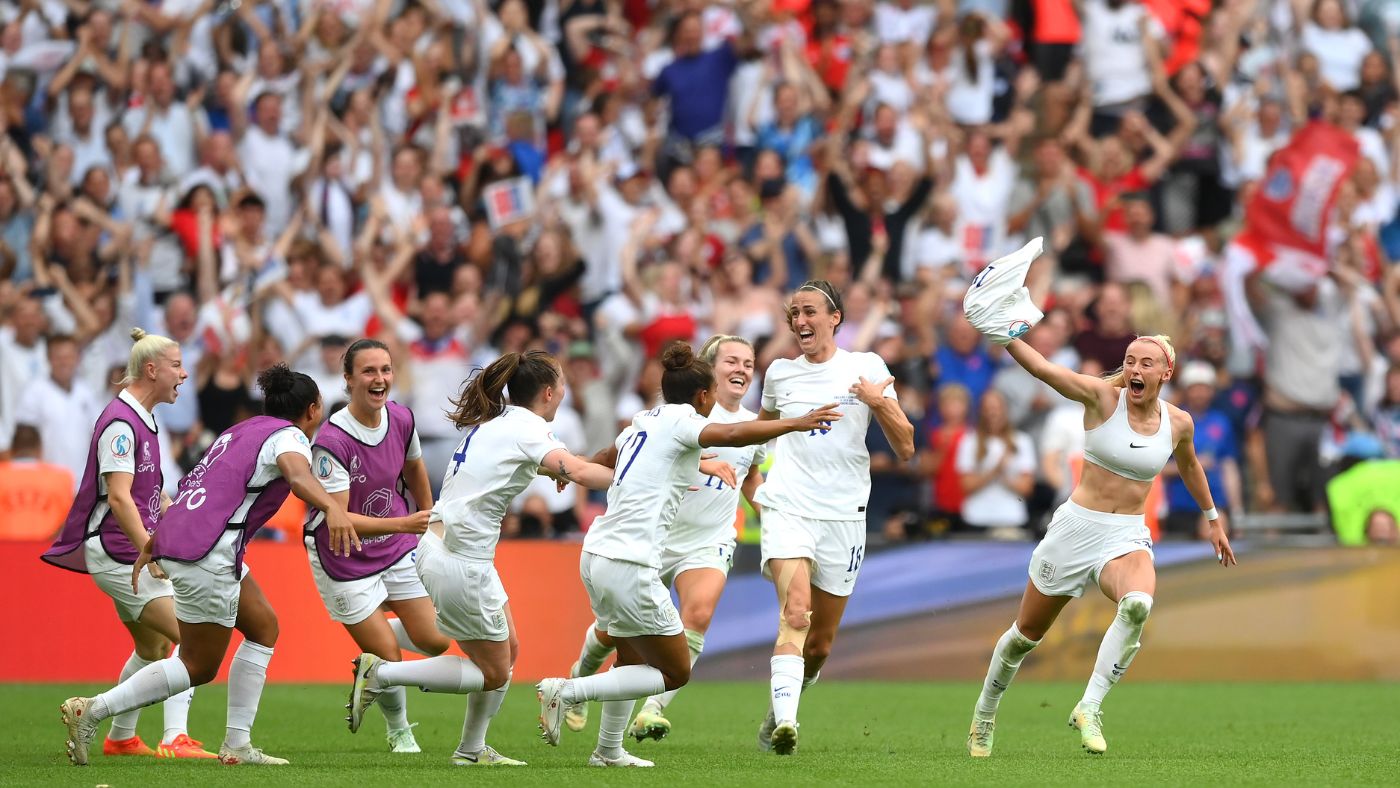
A year after the England men’s team lost the Euro final, on penalties against Italy, it was the turn of the women’s side to try to end the English football trophy drought at Wembley. And on 31 July 2022 the Lionesses roared to a 2-1 victory over Germany in the Uefa Women’s European Championship final, thanks to goals from substitutes Ella Toone and Chloe Kelly. A crowd of 87,192 – a record for a women’s Euro game – was inside the stadium to witness Kelly’s 110th-minute winner in extra-time. On Twitter, England men’s team captain Harry Kane hailed the “absolutely unreal scenes” at Wembley.
12. Now: the modern-day Wembley
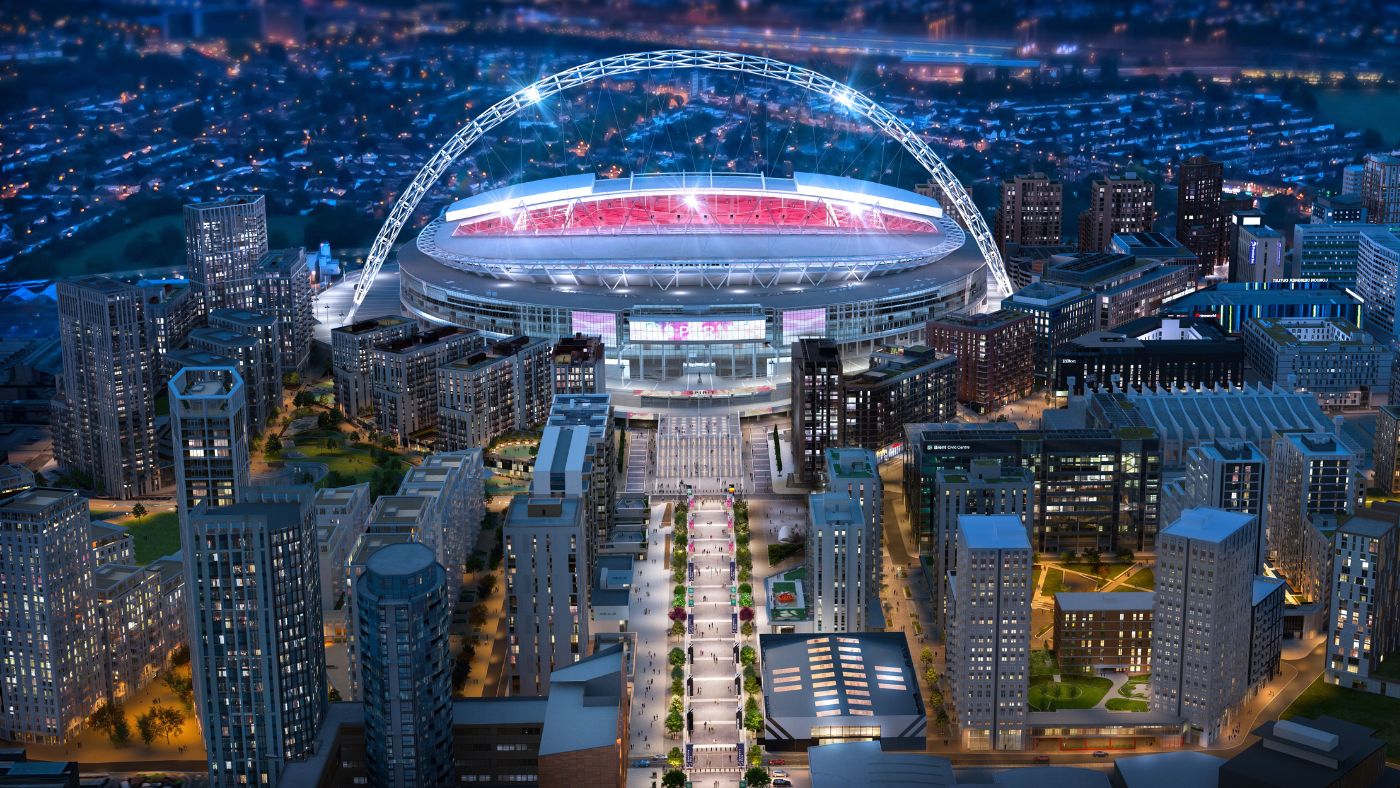
Brazilian legend Pelé, regarded by many as the greatest footballer of all time, described Wembley as the “cathedral of football”, the “capital of football” and the “heart of football”. And it remains “without doubt” the “most iconic stadium in world football”, said Joshua Hayward on Bleacher Report. The new design has “encompassed everything that was great” about the original stadium and has “added to that further”. The famous Twin Towers may “no longer be standing”, but in their place is the Wembley Arch.
A hundred years on from the opening of the original ground, Wembley is now not just home to the iconic stadium, but also the growing Wembley Park neighbourhood, which includes the OVO Arena Wembley, Olympic Way, Tube stations, public spaces, a theatre, restaurants, shopping outlets and residential buildings. Major events coming up include the Uefa Champions League final in 2024.
Mike Starling is the former digital features editor at The Week. He started his career in 2001 in Gloucestershire as a sports reporter and sub-editor and has held various roles as a writer and editor at news, travel and B2B publications. He has spoken at a number of sports business conferences and also worked as a consultant creating sports travel content for tourism boards. International experience includes spells living and working in Dubai, UAE; Brisbane, Australia; and Beirut, Lebanon.